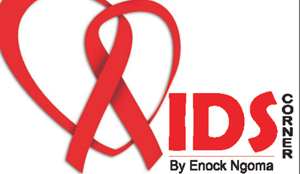 This is a true story I picked from the WebMD website and I thought I can share it. I know that in this very column, several stories of people living with HIV have been written especially from the local people. But sometimes, I feel it’s important to share experiences. This story is from the USA:
This is a true story I picked from the WebMD website and I thought I can share it. I know that in this very column, several stories of people living with HIV have been written especially from the local people. But sometimes, I feel it’s important to share experiences. This story is from the USA:
Joseph Wolfe, age 28, lives in Atlanta. He gave WebMD permission to use his name. Why? He feels that by refusing to be anonymous, his message will have a greater impact on others.
This is Wolfe’s story:
“I was diagnosed in May of last year. I gave blood at work, and then the blood bank called and said there were complications with my donation. Then they told me to contact the health department, and they made me come in and give another blood sample.
“It was very traumatic to learn I had HIV. Waking up, it was the first thing on your mind, and going to sleep it was the last thing on your mind. You forget for a second, then it hits you in the stomach like a ton of bricks.
“Some days I think I need to plan for my retirement. Other days I think I don’t need to worry, I won’t live that long. But it is mostly good now that I am getting all the facts. My doctor puts into perspective how good the medicines are and how the medical field has advanced in the last 20 years.
“I was put on drug therapy right away. I did a little research on the medications and their implications. But I pretty much trusted my doctor’s judgment. I am taking Reyataz, Videx, Viread, Emtriva, and Norvir. The first day I was scheduled to take the drugs, I was with my boyfriend visiting his parents out of town. You read so much about nausea and diarrhea, I was scared to death. But it was great. Nothing happened at all. I don’t have any side effects so far.
“I take my drugs once a day, in the morning when I first get up. Some people tell me they forget their doses or skip them sometimes. But for me, I know my life is on the line, and that makes it easier to remember.
“Right now I just take it one day at a time and hope that I can continue on these meds as long as I can. When time comes to change, I’ll deal with that. I trust my doctor’s optimistic outlook, which is very comforting.”
This is good and encouraging and it brings me to now discuss the importance of one knowing his or her HIV status.
The only way to know if you have HIV is to get an HIV test.
Several types of tests check your blood or body fluids to see if you’re infected. Most can’t detect HIV right away, because it takes time for your body to make antibodies or for enough viruses to grow inside you. It may be up tosix months before you’ll see a positive result, which means an early test could be negative even though you’re infected.
If you do have the virus, finding out quickly means you can start treatment to help you live a long and full life. You can also take precautions so that you don’t pass HIV to other people.
Antibody Screening Tests
These tests check for a kind of protein that your body makes in response to the HIV infection, 2-8 weeks later. They’re also called immunoassay or ELISA tests. They’re generally very accurate, but they won’t catch early infections.
Usually, a technician will take a small blood sample and send it to a lab for testing. Some immunoassay tests check urine or fluids from your mouth (not saliva), but there aren’t as many antibodies in these, so you may not get a positive result even if you’re infected. (That’s called a false negative.)
Rapid versions of these blood and oral fluid tests can give results in under 30 minutes, but they may give false negatives, too.
Antibody/Antigen Combination Tests
The CDC recommends these blood tests. They can detect HIV as soon as 20 days earlier than antibody screening tests. They check for HIV antigen, a protein called p24 that’s part of the virus that shows up 2-4 weeks after infection, as well as HIV antibodies.
A rapid antibody/antigen test can give you results in 20 minutes.
RNA Test
This looks for the virus itself and can diagnose HIV about 10 days after you’ve been exposed. It’s expensive, though, so it’s usually not the first test. But if you’re at high risk and you have flu-like symptoms, your doctor may want to use it.
For comments write to knoxngoma@gmail.com or call/text +260955883143






